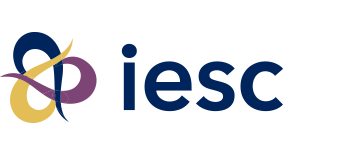Some Notes From Kharkov
May 5, 2014
November 1993. I stood at the apex of the Vietnam Memorial with former communist leaders from Kharkov, Ukraine, our faces reflected against the names of the dead etched forever into the polished black granite walls. Most everyone is moved by the memorial, and we were no exception.
We had hand-picked this delegation of 10 government administrators from Kharkov earlier in the year. My title was project manager for the International Executive Service Corps, a not-for-profit company that had a no-bid contract with the U.S. Agency for International Development to deliver technical consulting services in public administration to countries in Central and Eastern Europe, Ukraine and Kazakhstan.
The U.S. had not foreseen the collapse of the Soviet Union and was eager to get Americans in there. My project was one of the quickest to respond, and I was under some pressure to deliver.This delegation was one that I will never forget.
We started with a four-day tour of Washington. The delegates would then go on for six weeks immersion in American governance in Cincinnati, Ohio, the U.S. Sister City of Kharkov.
The Vietnam Memorial was in context with discussions we had in Kharkov a few months earlier. It turned out most of us were veterans. And so discussions of past wars and foreign policies, that included perspective of former enemies, provided wonderful conversations that evoked the hope that with the fall of the Soviet Union, wars would soon be ending.
Two of these delegates were well-known theoretical nuclear physicists. I was told that they had listened to Radio Free Europe and the BBC over the past many years and would sit together, as scientists and friends, to compare accounts with what Pravda was telling them. Turns out I was the first westerner they met who could substantiate their suspicions.
The first day of our program in D.C., we met in the offices of Sen. John Glenn where the physicists and the senator discussed how to remove nuclear weapons from Ukraine.
That was the hope that existed in 1993. With the collapse of communism, we thought we were actually making a difference for a ‘new world order,’ as it was being hailed at the time. If nothing else, it finally allowed the former Soviets to travel outside their isolated bubble to see just how far behind they really were.
It had been an eye-opening experience in Ukraine earlier in the year. My IESC team worked with public administrators, teaching and selecting delegates to come to the U.S.
Others worked on developing a commercial banking code or converting defense plants into facilities for domestic production. These were desperate times in Ukraine and the entire former Soviet Union.
I carried thousands of U.S. dollars in my pocket to pay our staff in Ukraine but also to pay the expenses for my team of three Americans. There were no banks, no ATMs and only money changers who were getting rid of the local currency as soon as they could.
Kharkov’s City Council consisted of 100 members, for a city of close to 2 million. It was pretty ineffective.
Council meetings would often erupt into meaningless rants. Intellectuals would look in on the meetings for enjoyment. Whatever laws passed by this body were subject to approval by the national government in Kiev. Read more…

